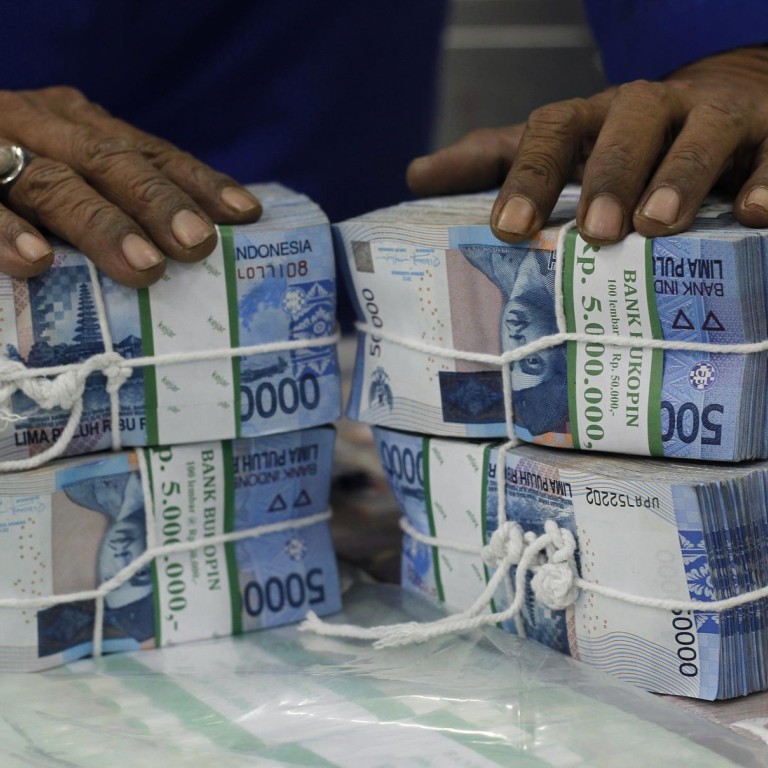
Indonesia fix will not come without pain
Stimulus measures and an expected rate rise may prop up the rupiah but current account deficit will be tougher to rein in as nation's exports slow
From a tumbling currency to a crippling current account shortfall, slowing economic growth, high inflation and retreating investors, Indonesia's stature as emerging-market superstar is under siege.
The immediate prospects look forbidding. Measures imposed by the government and central bank on Friday are no panacea for a near-record current account deficit that has torpedoed its currency, the rupiah, and spooked foreign investors who own nearly a third of its government debt.
Expected further interest rate increases and a possible rise in bank reserve deposit requirements, along with fiscal stimulus measures announced on Friday, could stabilise Indonesia's markets in the longer term and ultimately restore the allure of Southeast Asia's biggest economy.
I don’t believe the country is like what it was. [It has] drivers for growth
But the cost, say economists, will be more short-term pain to a slowing economy and the vulnerable rupiah, as foreign capital dwindles before an expected end to the United States Federal Reserve's policy of ultra-cheap money that had propelled investors into higher-yielding markets, from Brazil to Indonesia.
Less than a year ago, Indonesia was feted by investors clamouring to tap a booming middle class in the world's fourth-most populous country and its vast reserves of coal, natural gas and other resources. Annual economic growth raced ahead at more than 6 per cent. But demand growth, especially from China, weakened, commodity prices fell and easy global capital started to dry up.
Gordon Ip, manager of Hong Kong-based Value Partners, sees a bottom approaching after a turbulent two weeks that has sliced 14 per cent off Jakarta's benchmark stock index since August 12 and driven the rupiah to four-year lows of 10,900 per US dollar - a drop of nearly 11 per cent this year that has made it one of Asia's worst-performing currencies.
Ip said the rupiah was not far from the 15,000 per US dollar level reached during Asia's 1997-98 financial crisis, a period when Indonesia was far more vulnerable, with reserves only amounting to about half of its short-term external debt. Today, its foreign-exchange reserves cover about 170 per cent of short-term external debt, reducing the risk of a balance of payments crisis.
"I don't believe the country is like what it was in the past," Ip said. "At the end of the day, Indonesia is a country with massive natural resources, one of the most populous countries so that it can provide a lot of labour and its demographic is also one of the youngest in the world. All these will be positive drivers for future growth."
Central to Indonesia's problems is its current account. It has remained in deficit for seven quarters, driven by price declines for its most lucrative commodity exports - from coal to tin and palm oil - and the shortfall reached an unexpectedly large US$9.8 billion in the second quarter, the biggest since before the 1997-98 Asian financial crisis and equivalent to 4.4 per cent of gross domestic product.
A stimulus package unveiled on Friday sought to mend that deficit by shoring up exports, in part by offering tax breaks to companies in labour-intensive industries, such as garments and textiles, that export at least 30 per cent of their production. A luxury tax on certain domestic products will be phased out, meanwhile, to reduce imports.
Bank Indonesia, the central bank, faces growing pressure to raise interest rates to shore up the currency and curb inflation, which it said on Friday could exceed 8.9 per cent this month. It surprised financial markets on Tuesday by calling a board meeting for today, prompting speculation it might raise interest rates again instead of waiting for its next scheduled policy meeting on September 12.
"An imminent hike of at least 50 basis points in the reference rate to 7 per cent would not be out of order," HSBC's Singapore-based Southeast Asian economist Su Sian Lim said before news broke of the surprise meeting. "It may not turn markets around, but it should at least bring back some stability."

